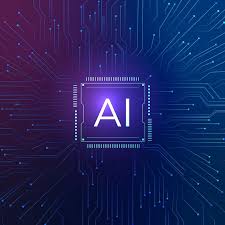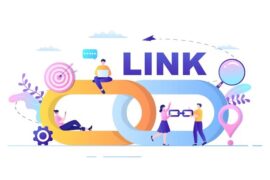Introduction
The landscape of digital marketing has been in a constant state of flux, with search engine optimization (SEO) serving as a pillar of online visibility for years. However, the rapid advancements in Artificial Intelligence (AI) technology have raised questions about the future of SEO. As AI continues to evolve, especially in areas like content generation, search algorithm refinement, and data analysis, many digital marketers and business owners are wondering: “Should I keep investing my time in SEO, or is it time to explore new avenues?”
In this first part of the article, we’ll examine the challenges and uncertainties businesses face when considering SEO’s relevance in the AI-driven age.
Resources for SEO: How it Works Today
SEO has long been a reliable strategy to improve a website’s ranking on search engines like Google. It involves optimizing content, improving user experience, using the right keywords, building backlinks, and more. To maintain a high ranking, businesses invest in tools and resources such as:
-
Keyword research tools (e.g., Google Keyword Planner, SEMrush, Ahrefs)
-
Content optimization platforms (e.g., Yoast SEO, SurferSEO)
-
Backlink analysis tools (e.g., Moz, Majestic)
-
Analytics tools (e.g., Google Analytics, Google Search Console)
But as AI technologies like GPT-3, GPT-4, and other language models improve, many of the processes traditionally carried out by SEO professionals are now automated, raising concerns about the future relevance of manual SEO strategies.
Summary of the Problem
While SEO continues to be an effective strategy, AI has fundamentally changed how content is created, distributed, and consumed. AI-powered algorithms are already able to generate content, understand user intent, and optimize websites faster and more efficiently than ever before. AI tools like ChatGPT are now capable of creating SEO-friendly content, and search engines themselves are using AI to refine ranking algorithms, making it harder for businesses to keep up.
As a result, digital marketers must consider if continuing to invest in SEO is a wise decision or if it’s time to pivot toward other emerging digital marketing strategies like AI-driven automation, voice search optimization, or other cutting-edge technologies.
Innovation in AI and SEO
AI innovations are making substantial waves in SEO practices. Google’s AI algorithm, BERT (Bidirectional Encoder Representations from Transformers), for example, is designed to better understand the context of search queries, which could make traditional keyword-based SEO less important. AI tools can now suggest optimizations based on user behavior, search intent, and contextual data in real-time.
Furthermore, AI technologies are helping websites optimize content automatically based on the latest trends in user behavior, reducing the manual effort required to maintain SEO rankings. Tools like ChatGPT and Jasper are even capable of generating content that aligns with SEO best practices, reducing the time needed for content creation and keyword targeting.
Implementation Challenges
Despite the exciting possibilities AI offers, implementing AI-driven SEO solutions presents challenges. The main concerns for businesses are:
-
Dependence on AI: While AI can automate many tasks, it cannot fully replace the strategic thinking, creativity, and nuanced understanding that human SEO experts bring.
-
Quality and Uniqueness of Content: AI-generated content may not always have the depth or originality required to stand out in highly competitive industries.
-
Constant Algorithm Changes: With Google’s constant updates to its search algorithms, businesses must stay on top of these changes to ensure their SEO strategies remain effective, which can be daunting for those relying too heavily on AI tools.
Conclusion of Part 1: The Shift in SEO and Digital Marketing
In conclusion, SEO remains a critical part of online visibility, but its future is heavily intertwined with advancements in AI. Businesses now face the dilemma of whether to stick with traditional SEO methods or evolve to incorporate AI-driven techniques. While AI brings efficiencies and innovation, it also introduces complexities and questions regarding the future role of human-driven SEO strategies.
Part 2: The Solution – Embracing AI in SEO: Implementation, Pros, Cons, and Future Growth
AI Implementation in SEO
Adopting AI in your SEO strategy doesn’t mean abandoning traditional SEO techniques; rather, it involves enhancing them. By integrating AI tools into your SEO efforts, businesses can unlock new levels of efficiency, but they must also adapt their approach to ensure long-term success.
Some practical ways to integrate AI into your SEO strategy include:
-
Automated Content Creation: AI tools can generate blog posts, product descriptions, and even optimize on-page content for targeted keywords.
-
User Intent Prediction: AI can help predict user intent, allowing businesses to create content that answers specific questions in the most relevant way.
-
SEO Analytics: AI-powered analytics tools can provide deeper insights into user behavior, allowing businesses to adjust their strategies in real-time.
Implementing these tools can streamline the SEO process and make it more efficient, but it’s important to combine them with traditional strategies that focus on content quality, user experience, and authoritative link-building.
Pros of AI in SEO
-
Increased Efficiency: AI tools can significantly reduce the time required for keyword research, content creation, and performance analysis.
-
Better Content Optimization: AI can help generate SEO-friendly content that is well-aligned with user intent, improving organic rankings.
-
Real-Time Adjustments: AI tools offer real-time insights and allow businesses to adapt their SEO strategies based on data-driven decisions, improving website performance continuously.
-
Cost Savings: By automating time-consuming tasks, businesses can allocate resources more efficiently, focusing on areas that require human expertise.
Cons of AI in SEO
-
Quality Control Issues: AI-generated content might lack the creativity and depth needed to engage audiences in competitive niches.
-
Over-Reliance on Technology: AI cannot replace the human element in SEO, particularly in areas like storytelling, brand voice, and content strategy.
-
Data Overload: While AI can offer valuable insights, the sheer volume of data generated can overwhelm businesses that don’t know how to filter and use it effectively.
-
Risk of Homogenized Content: If many businesses start using similar AI tools for content creation, there’s a risk of content becoming repetitive and formulaic, which could harm SEO rankings in the long run.
Growth of AI in SEO and Future Validity
Looking ahead, AI will continue to play a growing role in SEO. As AI becomes more sophisticated, it will likely offer even greater capabilities, including more advanced content generation, personalized search experiences, and predictive SEO.
The key to future-proofing your SEO strategy lies in staying ahead of the AI curve. To remain competitive, businesses should:
-
Invest in AI Tools that complement their existing SEO efforts while understanding their limitations.
-
Focus on Data-Driven Insights to optimize both the technical and creative aspects of SEO.
-
Maintain a Human Touch in areas that require nuanced understanding, such as content strategy, brand identity, and customer engagement.
Conclusion: Embracing AI and the Future of SEO
In the face of rapid AI development, it’s clear that SEO isn’t dead—it’s evolving. By integrating AI into your SEO efforts, you can make your strategies more efficient, responsive, and data-driven. However, relying solely on AI may not be the right approach for every business. The best SEO strategies of the future will blend AI-driven techniques with human expertise, creativity, and deep understanding of user needs.
The future of SEO will likely involve hybrid models, where AI assists with technical optimization and content generation, but humans still provide the strategic direction and creative input needed for long-term success. As AI continues to shape the digital landscape, businesses that adapt to these changes while maintaining a strong SEO foundation will continue to thrive.



